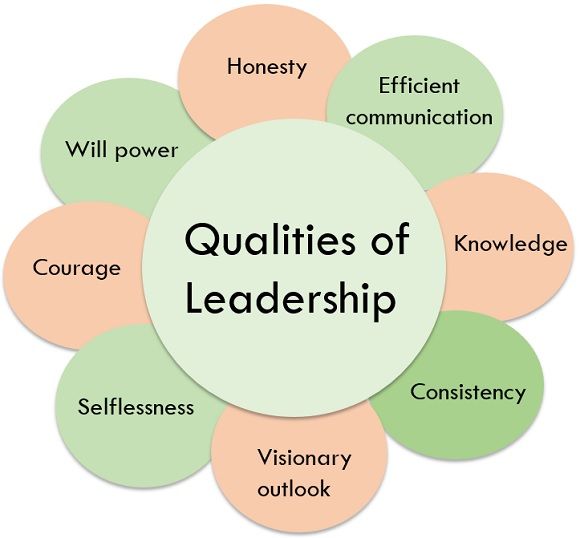Within today's rapidly changing and ever-changing world, strong leadership has become a critical necessity. Leaders are responsible not just with guiding their teams to success but also with fostering an environment of trust and collaboration. At the heart of this effort lies the realization that trust is the foundation of effective leadership. Without it, even the most skilled leaders struggle to inspire their teams or achieve their goals.
Cultivating strong leadership skills is crucial for any professional looking to make an impact. From decision-making and communication to adaptability and emotional intelligence, mastering these skills can significantly enhance a leader's effectiveness. This article will discuss the top ten leadership skills every professional should master, highlighting how each skill contributes to fostering trust and enhancing team performance. Whether you are entering a new leadership role or wanting to improve your capabilities, these insights will empower you to become a leader that others admire and follow.
Fundamental Leadership Skills to Master
Effective leadership hinges on a set of core skills that each professional should strive to develop. One such skill is the ability to understand emotions, which allows leaders to connect with their team members on a more meaningful level. By recognizing and controlling their own emotions, as well as sympathizing with others, leaders foster an environment where individuals feel recognized and understood. This connection not only boosts morale but also improves teamwork and collaboration, ultimately driving the success of the organization.
Another critical skill is strong communication. Leaders must articulate their vision effectively and ensure their messages are understood with their audience. This involves not just talking but also being attentive. Leaders who hone their communication skills are more prepared to inspire their teams, leading to stronger performance and a more engaged workforce. Clear communication also plays a critical role in resolving disputes, enabling leaders to navigate disagreements and build consensus.
Adaptability is more and more vital in the current fast-paced world. A successful leader must be able to change strategies and accept change while supporting their team through challenges. This agility allows leaders to react quickly to challenges and capitalize on new opportunities as they arise. By mastering resilience, leaders ensure they can maintain their effectiveness and foster resilience within their teams, promoting a culture that flourishes amidst change.
Building Trust and Clear Communication
Establishing trust within a team is essentially tied to clear conveyance. When supervisors convey transparently and consistently, they foster an atmosphere where group members experience valued and acknowledged. This clarity fosters a feeling of safety, allowing team members to share their thoughts without fear of repercussions. As trust develops, so does engagement, leading to greater output and cooperation among team members.
Furthermore, clear communication is not just about communicating messages; it entails actively listening and reacting to others’ needs. When leaders implement thoughtful listening, they show consideration for their team's input, which strengthens trust. This two-way dialogue motivates workforce members to communicate more openly, leading to innovative concepts and stronger relationships. By exhibiting that their perspectives are important, supervisors can foster a environment where individuals are driven to contribute to the workforce’s success.
Ultimately, trust developed through efficient communication empowers managers to handle difficulties more easily. When team members trust their supervisor and each other, they are more likely to tackle problems head-on and develop answers collaboratively. This shared strength becomes a basis of a effective team dynamic, allowing managers to inspire their workforces even in tough periods. By focusing on clear communication as a means to build trust, leaders can realize the complete capabilities of their groups.

Cultivating Resilience and Adaptability in Leadership
In today's rapidly changing and dynamic environment, resilience has become an essential trait for successful leaders. Resilience allows leaders to bounce back from setbacks and keep their focus despite challenges. This quality not only helps leaders navigate crises but also motivates their teams to embrace a similar mindset. Cultivating resilience involves recognizing the inevitability of change and maintaining a optimistic outlook, even in adverse situations. This approach encourages a culture of tenacity within the team, where challenges are viewed as chances for growth.
Adaptability is closely linked to resilience, and it is vital for leaders to remain flexible in their strategies and methods. The ability to change direction in response to new data or changing circumstances can determine the success of a team or organization. Strong leaders assess their environments quickly and adjust their plans accordingly, ensuring that their teams remain aligned with shifting goals. By embracing flexibility, leaders demonstrate a willingness to learn and evolve, which can foster a similar attitude within their teams.
To effectively develop both resilience and adaptability, leaders should prioritize continuous learning and self-reflection. Engaging in regular training, requesting feedback, and being open to new ideas are all ways to enhance these skills. Additionally, leaders should encourage an environment where team members feel confident to share their insights and suggest modifications. When https://carvernavarro86.livejournal.com/profile and adaptability, they not only enhance their own capabilities but also enable their teams, creating a more robust and agile organization capable of thriving in the face of uncertainty.
